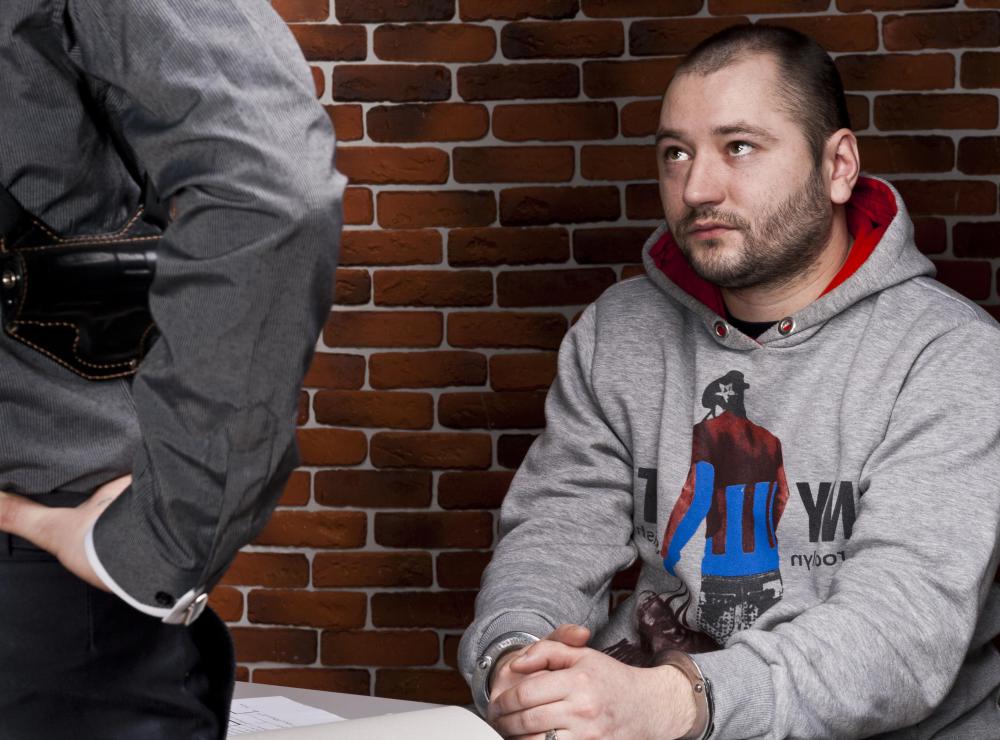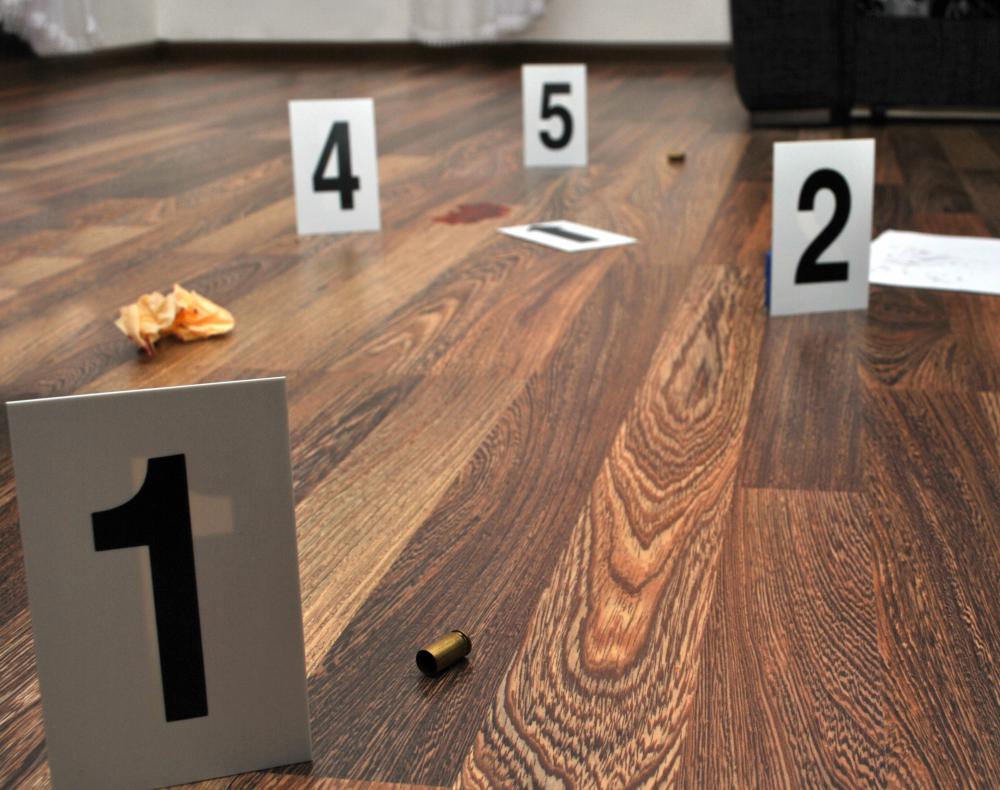At PracticalAdultInsights, we're committed to delivering accurate, trustworthy information. Our expert-authored content is rigorously fact-checked and sourced from credible authorities. Discover how we uphold the highest standards in providing you with reliable knowledge.
What is Criminal Psychology?
Criminal or forensic psychology is a branch of the field of psychology which focuses on criminals. Criminal psychologists can engage in a number of activities related to criminal investigations, ranging from creating profiles of offenders or victims based on available information to conducting psychological testing of people on trial for various crimes. Training in criminal psychology can include a bachelor's, master's, or doctorate degree in psychology.
Criminal psychology should not be confused with criminal psychiatry; while both deal with mental health issues, psychiatry is heavily focused on the diagnosis and treatment of mental disorders, which can include a variety of therapies and treatment approaches, while psychologists study human behavior and the motivations behind it, which can include mental illness and ways in which it can be treated.

Researchers in criminal psychology are interested in what makes people commit criminal acts, ranging from the childhood environments of serial killers to the psychological pressures which lead people to rob banks to deal with financial problems. They are also interested in the ways in which criminals deal with the aftermath of a crime, including criminals who choose to run or act up in court.

The insights of someone trained in criminal psychology can be valuable in a criminal investigation. These psychological professionals can utilize a variety of clues to gain an insight into the nature of a crime and the person who committed it. For example, a murderer who mutilates a victim may leave markings which could be tell-tale clues to motivations or identity which could be used to develop a psychological profile which might help investigators identify suspects. Likewise, a criminal psychologist could look at the victims selected by an offender and draw conclusions about the offender and likely future targets from their profiles.

An expert in criminal psychology may be asked to observe or participate in the interrogation of a person of interest in a crime, or to interact with the victim to gather information. He or she can also gather psychological clues from conditions at a crime site or an offender's home, and suggest areas of pursuit which might be rewarding for investigators.

Some criminal psychologists focus on working with children who commit crimes or who are victims of crime. They usually have degrees in child psychology and have pursued additional training in criminology and forensic psychology, and they may help children as patients in a clinical practice, testify about child criminals in court, or offer assistance to criminal investigations involving children.
AS FEATURED ON:
AS FEATURED ON:















Discussion Comments
It seems to me that anyone is capable of a crime. Perhaps we do not like to think this way of humans. The right atmosphere, the right time; the given situation can cause one to react emotionally rather than logically.
I think at one time innocent until proven guilty was accurate, however, criminals are already judged and in lieu of this given more rights than the average citizen. it seems as though we should deal with every situation within its own element and work directly with the evidence given, validate it, convict or release.
@TrogJoe19
I think that, while there are clear patterns in the mindset of a criminal, the line is very fuzzy and we should tread with caution when evaluating someone as likely to commit a crime. We can't know anyone's thoughts, and everyone has their times of high anger, even violence. Sometimes it is necessary to have faith in the human race rather than constant doubt and second-guessing paranoia.
@TrogJoe19
Such speculation is dangerous ground to tread. Human judgment concerning other humans can be deadly when taken to a level of justice without due process. The American ethic of "innocent until proven guilty" contrasts sharply with much of the world and much of history. Many places suppress freedom of speech and self-expression under a shroud of fear of being noticed and apprehended by authorities without a real solid shred of evidence. It is this kind of reflexive rule-setting which fuels discrimination.
I often wonder if there are a set of patterns which can definitively determine if someone is a "criminal" or likely to commit a crime in the future. If we had such a set of psychological cues, wouldn't finding and nabbing criminals be easy? It seems to me that an intensive study and implementation of certain "tests" might prevent crimes from ever occurring.
Post your comments